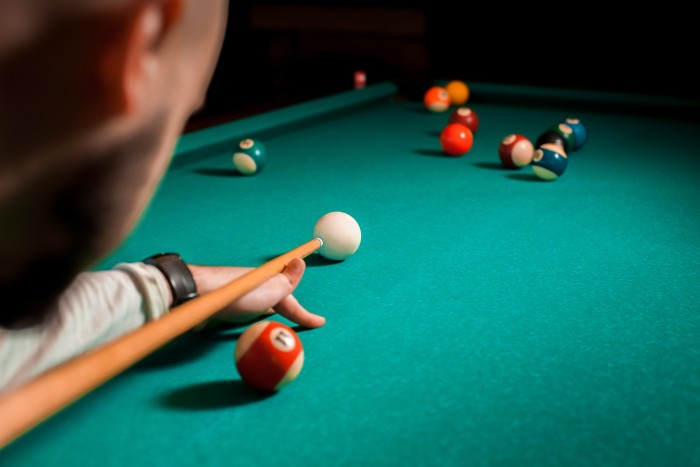Master the Game: Essential Tips to Improve Your Pool Skills for Table Owners and Clubs
Understanding the Art of Playing Pool: A Comprehensive Introduction
Playing pool is about so much more than hitting balls with a cue. It’s an elegant dance of strategy, geometry and skill. When you delve into the history of pool you gain a deeper appreciation of the game. It started as a lawn game in the 15th century, adapted over time to indoor play and transformed into the table game we know today.
The Rich History of Pool
Pool’s journey took it from European courts to American bars, attracting people from all walks of life. A great deal of its charm lies in this rich history, so it’s well worth the time to dig into it. Uncover the stories of how pool legends made their mark on the game. Learn how the game evolved to suit the changing tastes of different eras. This historical knowledge can deepen your appreciation of the game and inspire you to hone your skills.
Rules of the Game: Different Variants of Pool
Did you know there are multiple ways to play pool? It’s not just about sinking the 8-ball. Different variants like 9-ball, straight pool and one-pocket each have their unique rules and strategies. Here’s a quick overview:
- 9-ball: The object is to legally pocket the 9-ball. Sounds simple, but there’s a catch. You have to strike the lowest numbered ball on the table first.
- Straight pool: This is all about reaching a set number of points. Players can pocket any ball, but the key is to do so strategically.
- One-pocket: Each player is assigned one of the two corner pockets at one end of the table. The winner is the first to pocket the majority of balls into their designated pocket.
Understanding these variations can make you a more versatile player. It can also make your game nights more exciting by introducing new challenges.
Getting the rules right is essential for fair play. Make sure you and your fellow players are on the same page about which game you’re playing. You might even want to keep a rulebook handy by your pool table for quick reference.
Immersing yourself in the art of playing pool enhances the game on multiple levels. A deeper appreciation of pool’s rich history and the subtleties of its rules can enhance your love for the game, and make you a better player. It’s not just about winning—it’s about appreciating the journey, one shot at a time.
Creating an Ideal Setting: How Pool Table Conditions Impact the Game

One of the most overlooked aspects of the game of pool is the condition of the table itself. Like a stage for dancers or a field for footballers, a pool table sets the arena for the game. The surface needs to be flawless, the balls of the best quality and the cues in excellent condition. Each of these elements plays a crucial role in the outcome of a match.
The Importance of a Level Table
Consider the pool table your battlefield. Any slight deviation in the levelness can drastically alter the path of the balls, affecting your game’s accuracy. When setting up your pool table, use a quality carpenter’s level to ensure the playing surface is flat. It’s advisable to check the levelness every few months as subtle shifts in the floor can unlevel your table over time. If you want to ensure fair and balanced gameplay a level table is a must.
Choosing the Right Pool Balls and Cues
The quality of your pool balls and cues can make a huge difference in your game. Opt for phenolic resin balls, known for their durability and uniform weight distribution. As for cues, it’s all about personal preference. Some players might prefer a heavier cue for breaking shots, while a lighter one offers better control for delicate shots. Remember, the cue should feel like a natural extension of your arm. And don’t forget the importance of a well-shaped cue tip. It should be rounded like a penny to ensure consistent contact with the cue ball.
Maintaining Optimal Table Felt Condition
Your pool table’s felt is more than just a green carpet—it’s the runway for your shots. The speed, spin, and overall movement of the balls are directly influenced by the condition of the felt. Regular brushing and occasional vacuuming can keep the felt clean and smooth. Avoid spills at all costs and get any rips repaired promptly to keep the felt in prime condition.
Creating the ideal environment for pool is an art in itself. By paying close attention to the condition of your pool table, balls and cues, you’re setting the stage for a great game. So, don’t overlook these details—they could be the difference between a good game and a great one! Remember, in the game of pool, it’s not just about the player but also about the playing field. An excellent player on a subpar table can struggle, but on a well-maintained table, every shot is a potential masterpiece.
The Technique Toolbox: Key Skills for Consistent Playing Pool Performance
Playing pool successfully requires more than understanding the rules and maintaining your equipment. To truly excel at this game, you need to master a few essential skills. From perfecting your stance to understanding the geometry of the table, these techniques are your tools for a winning performance.

Basic Shot Techniques and Stances
The foundation of a great pool game lies in the fundamentals: a solid stance and a consistent stroke. Your stance should be stable and comfortable, allowing for a smooth, straight stroke. Stand sideways to the table, lean over the cue, and align your dominant eye with your shot. Keep your grip relaxed, your stroke straight, and follow through. Consistency is key, so practice until these basics become second nature.
The Art of Aiming: Calculating Angles in Pool
Aiming in pool is part intuition, part geometry. Understanding angles is essential in predicting the path of the ball. Imagine a line from the object ball to the pocket and aim to strike the object ball along that line. For shots where the ball isn’t straight on, use the Ghost Ball method. Visualize where the cue ball needs to be to make a straight shot, then aim for that imaginary “ghost” ball.
Mastering the Spin: How and When to Use English
In pool, English refers to the spin on the cue ball, altering its natural path after hitting an object ball. Here are two basic types:
- Top English (or follow) means striking the cue ball above center, making it spin forward after contact.
- Bottom English (or draw) is striking the cue ball below center, causing it to spin backward after hitting the object ball.
Used correctly, English can help you position the cue ball for your next shot or avoid a scratch. But beware, it also complicates your shot, so use it judiciously.
The game of pool is a blend of physical skill and mental strategy. By focusing on your basic technique and understanding the principles of aiming and spin, you can improve your game significantly. Remember, the best pool players are always learning, always practicing. So, grab your cue, approach the table, and make every shot count. After all, it’s not just about sinking balls into pockets; it’s about becoming a true artist of the felt canvas.
Climbing the Skill Ladder: Playing Pool Advanced Pool Strategies
As you get comfortable with the basics of pool, it’s time to take your game to the next level. Advanced strategies like perfecting the break shot, mastering position play, and understanding safety play can help you gain the upper hand in challenging matches. Let’s dive in.
Perfecting Your Break Shot
The break shot sets the tone for the entire game. A strong break can spread the balls widely, increasing the chances of potting a ball and opening up opportunities for subsequent shots. The key to a powerful break is a solid grip, a stable stance, and a straight, swift stroke. Aim for the front ball or the second ball, depending on the game variant, and remember to follow through for maximum power.
The Strategy of Position Play
Pool is a game of strategy, and position play is an essential part of it. It’s about planning ahead, positioning the cue ball for your next shot, and even for the shots after that. Start visualizing the table in terms of paths for the cue ball, aiming for positions that make your next shot easier. It might seem daunting at first, but with practice, you’ll start seeing the patterns and opportunities in every layout.
Practicing Safety Play and Defense
When you can’t pocket a ball or achieve a favourable position, a smart defensive play can turn the tide of the game. This strategy involves placing the cue ball in a spot where it’s hard for your opponent to make a direct shot. It’s about thinking one step ahead and controlling the table, limiting your opponent’s options and buying you some time for better positioning.
Advancing in pool requires continuous learning and practice. As you refine your break shot, think ahead with position play, and outsmart opponents with safety plays, you’ll find yourself becoming a more confident and formidable player. Remember, even the greatest pool players were once beginners. With time, patience, and a dedication to improvement, you’ll soon see your pool skills climbing up the ladder. And that’s when the real fun begins!
Building a Pool Community: Tips for Pool Table Owners and Clubs to Foster Engagement
The love for pool is something meant to be shared. As a pool table owner or a club manager, you have the unique opportunity to create a community centered around this fascinating game. Here are a few tips to foster engagement, encourage learning, and promote a sense of camaraderie among pool enthusiasts.
Organising Regular Pool Tournaments
One of the best ways to bring pool lovers together is by organising regular tournaments. These events offer players a chance to showcase their skills, learn from each other, and enjoy some friendly competition. You can have various categories, like beginners, intermediate, and advanced, so everyone gets a fair shot.
Fostering a Culture of Learning and Improvement
Creating a space where people can learn and improve is essential in building a vibrant pool community. Conduct workshops and coaching sessions for different levels. Invite experienced players or local pool professionals to share their tips and strategies. Encourage members to help each other out, making learning pool an enjoyable and inclusive experience.
Promoting Fair Play and Sportsmanship
In every sport, maintaining a high standard of conduct enhances the overall experience. Promote a culture of respect, fair play and good sportsmanship. Celebrate not just the winners, but also the effort put in by every player. Encourage constructive feedback and discourage any form of negativity or unsportsmanlike behaviour.
Building a community around pool is not just about enjoying the game; it’s also about connecting people. As you organize tournaments, foster a learning environment, and promote fair play, you’ll see your community grow stronger and more vibrant. Remember at its heart, pool is a social game. It’s as much about the people around the table as it is about the balls and cues.
So, take the initiative to create an environment where everyone feels welcomed, valued and excited to play. A place where each shot taken is more than just a game—it’s a celebration of a shared passion. After all, that’s what a true pool community is all about.
Call IQ Pool Tables on 0161 494 8485 for table recovering services, game accessories and a wide range of new pool and snooker tables.
